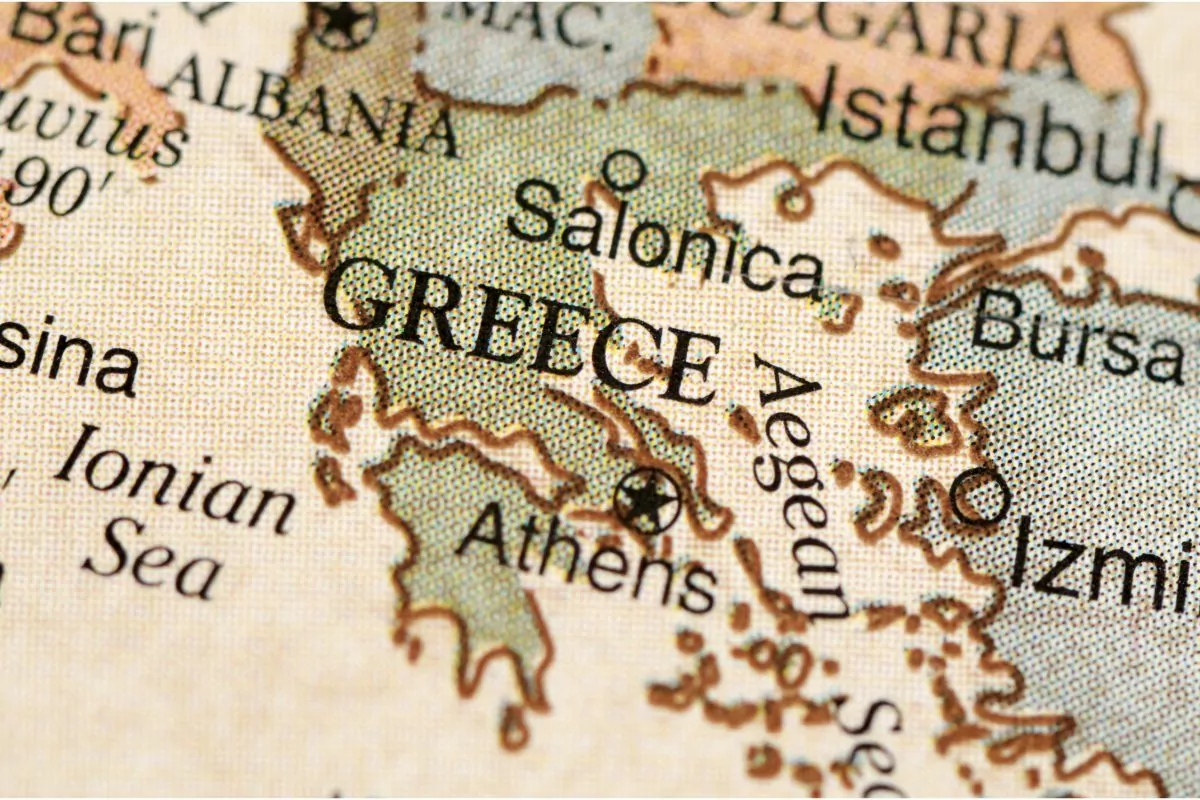Saying goodnight is a very normal tradition that spans many different countries and cultures.

Whilst we’re all probably used to saying it and hearing it in English, we might not be so familiar with the Greek equivalent.
The phrase goodnight in Greek is καληνυχτα or kali nichta – but it’s important that we note that goodnight and good evening have completely different meanings.
This guide will examine all of the facets of this along with a whole host of other useful pieces of information.
Looking for some handy Greek phrases? Read on to learn more!
Goodnight And Good Evening In Greek
As we mentioned, the phrases goodnight and good evening are totally different and they have different contexts.
Let’s look at the two more closely.
Goodnight
Saying goodnight in Greek is kali nichta (καληνυχτα) and this phrase is not used in a greeting context (You might also want to check out How Do You Say Cheers In Greek?).
It is only used when someone is about to go to bed or in some hospitality settings.
For example, it would be perfectly acceptable to say kali nichta if you are in a restaurant or bar at the end of the night and they are closing.
However, it would not be in the right context to say goodnight whilst walking down the street and greeting someone.
The two phrases must be understood more importantly if you were planning to move permanently to Greece, or you plan to get into the Greek market in terms of sales or trading.
Good Evening
Saying good evening in Greek is kalo apoyevma (καλό απόγευμα) and the phrase is used almost exclusively as a greeting.
If you were to walk past a store in the late afternoon or early evening, this would be the correct phrase to use.
This also applies if you were to walk past a tourist or local.
However, you would not use this phrase if someone was about to go to bed, or you were to take your leave from a restaurant or bar at the end of a night.
How Does This Differ From The United States?
Often, the two phrases goodnight and good evening are used interchangeably in the United States.
Whilst it is much more common to hear someone say goodnight at the end of a night at a bar, it wouldn’t be wrong to also say “good evening to you” or “have a good evening”.
But in Greek, the two phrases change their entire context.
As one is a greeting and the other is effectively a “sign off”, it would be the equivalent of saying “goodbye” when greeting someone for the first time.
What About Other Greetings?

It’s probably a good idea that we cover the other most commonly used greetings in Greece. So, if you’re wondering about phrases like good morning – we’ve got that covered below!
Good Morning
Good morning in Greek is kalimera (καλημέρα) and as in most other countries, it is a greeting used either first thing in the morning after someone wakes up, or as a greeting during the morning hours.
It’s common to hear this greeting in stores, cafes and other businesses during the morning hours, but you may also hear it a lot on Greek media such as the news on television or radio.
Interestingly about this phrase though is that it directly translates as “good day”, despite the phrase being used almost exclusively in the morning.
Good Afternoon
Good afternoon in Greek is a little different. You would say kalo apogeuma (καλό απόγευμα) and this effectively translates as “have a nice afternoon”.
As you can probably imagine, this greeting will be used during the afternoon hours – but actually not all of the afternoon.
Whereas in many English speaking countries, we would reserve the phrase “good afternoon” from midday onwards, Greece does not (Also check out Do People In Greece Speak English?).
There is another phrase in Greek that you will use for the midday hour exclusively.
Good Midday
Good midday in Greek is kalo mesimeri (καλό μεσημέρι) and translates as “have a nice midday”.
You would use this phrase exclusively as a greeting in the midday hour (12pm to 1pm), but you could also use it in a future context.
For example, if you are on the phone or in the workplace and either speaking in the context of the afternoon or you are nearing the midday hour – you may decide to use this greeting.
It’s not as widely used as good afternoon, but it’s also not beyond the realms of possibility to hear this.
If anything, it’s more of an antiquated greeting but still exists.
Greek Siesta And Goodnight
It might be very well known that Spain practises a siesta, which is effectively a time during the hottest hours of the day where businesses close and they rest at home.
Greece still takes part in the siesta tradition in some places, but normally this is where there are less tourists.
As a siesta often involves a short sleep time, you may be wondering what phrase would be contextually correct.
You’d be correct in thinking that saying goodnight would be the wrong phrase to use.
In this context, you probably would not use a “sign off” phrase, but if you are leaving someone to take a siesta, the correct phrase to use would simply be “goodbye” which is antio sas (αντιο σας).
When Is The Usual “Bedtime” In Greece?
Saying goodnight is usually done at “bedtime”. Due to the temperature and work commitments, it’s not uncommon for the Greeks to be relatively nocturnal.
In other words, it would be very normal for Greek areas to be bustling until the early hours of the morning – especially if they take a siesta.
The Bottom Line
Saying goodnight in Greek is καληνυχτα or kali nichta. You would use this phrase to leave a closing bar or restaurant, or before going to bed.
- The Top Restaurants Specializing in Truffle Dishes - August 10, 2023
- Truffle Panna Cotta: A Decadent Dessert Recipe for Truffle Lovers - August 7, 2023
- Truffle Scrambled Eggs: A Luxurious Breakfast Delight - August 7, 2023








